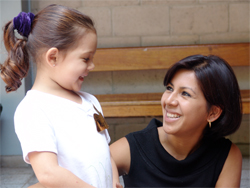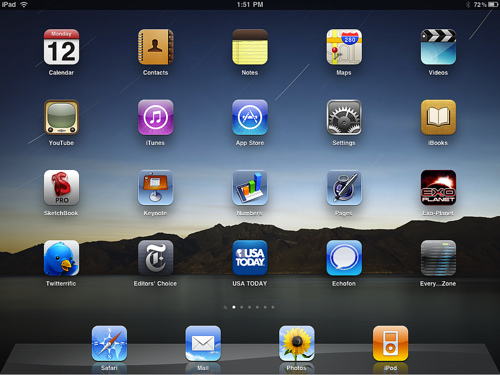
IMS Expert on websites/online content, tech advice and computer support.
Jacqui is the editor of a technology curriculum for K-fifth grade and author of two technology training books for middle school. She wrote Building a Midshipman, the story of her daughter’s journey from high school to United States Naval Academy midshipman. She is webmaster for five blogs, an Amazon Vine Voice book reviewer, a Cisco blogger, a columnist for Examiner.com, and a weekly contributor to Write Anything. Currently, she’s editing a techno-thriller for her agent that should be out this summer. Contact Jacqui at her writing office, WordDreams, or her tech lab, Ask a Tech Teacher.
If you’re interested in technology textbooks for K-5, visit Structured Learning. You’ll find the tech curriculum Jacqui Murray and hundreds of schools across the nation use.
LinkedIn: Jacqui Murray

When I was asked to write a piece about teaching last week, I knew I could write fluff about the feel-good nature of working with children, or the high of enlightening a child's cerebral world. In fact, that would be true, but if you're reading this article because you're pondering a position as a teacher, you already know that. What you want to know is: Is it worth it? Five years into the career, when you’ve had too many truculent parents and challenging students, do you still feel the scales are balanced?
Let’s back up a moment. The most common reason cited for becoming a teacher is altruism. Teachers self-report they join the ranks of those with the greatest influence over the future of our nation--our world--because they want to do something worthwhile with their lives. But if you scratch beneath that noble veneer, you find other reasons:

My school is an IB school. We follow the philosophy that to educate students requires an international understanding of the world, people and ideas. Part of the curriculum requires fifth graders to participate in an Exhibition where they use knowledge accumulated over six years of education to communicate their ideas on a global issue such as displacement, global warming, lack of education, pollution, world hunger, and limited access to fresh, clean water.
Last year, the fifth grade team asked me to brush students up on Publisher/PowerPoint/Word skills so they could construct their presentation. This year, I'm taking a different approach by encouraging students to think outside the box in communicating their ideas. We're spending six weeks studying and teaching each other some of the amazing online communication tools that offer motivating and inspirational ways to share thoughts.

Tablet computing and mobile devices promise to have a dramatic impact on education. A growing number of schools across the world are jumping on the digital bus and embracing iPads as the latest tool to teach literature in multimedia, history through games and simulations, and maths with step-by-step animation of problems.
In my school, we have been rotating one set of iPads this year and it gave me an opportunity to collect quite a few apps on a variety of subjects. Here's my favourites - all 107 of them:

Twitter can easily be dismissed as a waste of time in the secondary school classroom. Students will get distracted. Students will see tweets they shouldn't at their age. How does one manage a room full of Tweeple without mobile phones? Is it even appropriate for years 7 and 8?
Here's some ammunition for what often turns into a pitched, take-sides verbal brawl as well-intended teachers try to come to a compromise on using Twitter (in fact, many of the new Web 2.0 tools-- blogs, wikis, websites that require registrations and log-ins, discussion forums. You can probably add to this list) that works for all stakeholders:

I get this question often - and it pops up frequently on my IT teacher forums and Nings. IT teachers as a group are struggling to understand their future role: are computer skills to be taught in dedicated computer-room-based IT lessons, or should the teaching of these skills be integrated into standard classroom lessons?
Here are a few points to consider.

Every day in my K-8 tech classes, I use a variety of cloud-based tools to enhance the learning experience for my students. There are more of these 'Web 2.0' tools than I can keep up with, but when you teach tech or coordinate technology for your school, 'keeping up' is part of your job.
Here's how I determine which of these hundreds (thousands?) of tools are student-ready:

Technology, the internet, computers, are words that confuse, even frighten, many parents. In my blog, Ask a Tech Teacher, I post lots of tips, tricks, a list of hundreds of kid-friendly websites, self-help articles on how to address this in your homeschooled child's education. Every week, I get lots of questions from parents about the right way to address access to technology. Most want suggestions on how to make computer use a positive experience for their little ones.
After fifteen years of teaching technology in a classroom and online, I can tell you without a doubt that educating your child can be done more efficiently and with better results in the world of computers. I don't mean ONLY on computers. I mean using technology to extend your scholastic reach:

‘Web 2.0’ is a term familiar to all teachers. Stated in its simplest form, it’s the set of interactive internet-based tools used by students to enrich educational opportunities. ‘Web 1.0’ referred to the act of accessing websites—nothing more. Students read websites, clicked a few links, and/or researched a topic.
Web 2.0—Web-based education basics--includes blogs, wikis, class internet homepages, class internet start pages, twitter, social bookmarks, podcasting, photo sharing, online docs, online calendars, even Second Life—all tools that require thoughtful interaction between the student and the site. For teachers, it’s a challenge to keep up with the plethora of options as the creative minds of our new adults stretch the boundaries of what we can do on the internet.

In schools, there are twenty problems that cause about eighty percent of the tech stoppages. I’m going to tell you what those are and how to solve them [using a Windows operated system]. Trust me, they’re easier than you think to correct. I routinely teach them to children and then they teach their parents.
I’ll tell you the problem first, then why it generally occurs, and finally, the most common solution to fix it:
Deleted a file
Why: By accident or changed my mind
What to do: Open Recycle Bin; right-click—restore

There's a secret to teaching kids how to use the computer. It's called 'delegate'. I don't mean delegate the teaching to aides or parents. Here, I'm referring to empowering students to be their own problem-solvers, then expect it of them. Here's how you do it:
 I’ve been teaching technology to year 1 through to year 6 for almost fifteen years. Parents and colleagues are constantly amazed that I can get the littlest learners to pay attention, remember, and have fun with the skills that are required to grow into competent, enthusiastic examples of the Web 2.0 generation.
I’ve been teaching technology to year 1 through to year 6 for almost fifteen years. Parents and colleagues are constantly amazed that I can get the littlest learners to pay attention, remember, and have fun with the skills that are required to grow into competent, enthusiastic examples of the Web 2.0 generation.
I have a confession to make: it’s not as hard as it looks. Sure, those first few reception months, when they don’t know what the words enter and backspace mean, nor the difference between the keyboard and headphones, and don’t understand why they can’t grab their neighbour’s headphones or bang on their keyboard, I do re-think my chosen field. But that passes. By January, every parent tour that passes through my classroom thinks I’m a magician.

A community-driven platform for showcasing the latest innovations and voices in schools
Pioneer House
North Road
Ellesmere Port
CH65 1AD
United Kingdom